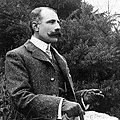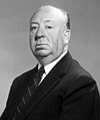Portal:England
The England portal

| |
England is a country that is part of the United Kingdom. It is located on the island of Great Britain, of which it covers about 62%, and more than 100 smaller adjacent islands. It has land borders with Scotland to the north and Wales to the west, and is otherwise surrounded by the North Sea to the east, the English Channel to the south, the Celtic Sea to the south-west, and the Irish Sea to the west. Continental Europe lies to the south-east, and Ireland to the west. At the 2021 census, the population was 56,490,048. London is both the largest city and the capital.
The area now called England was first inhabited by modern humans during the Upper Paleolithic. It takes its name from the Angles, a Germanic tribe who settled during the 5th and 6th centuries. England became a unified state in the 10th century and has had extensive cultural and legal impact on the wider world since the Age of Discovery, which began during the 15th century. The Kingdom of England, which included Wales after 1535, ceased to be a separate sovereign state on 1 May 1707, when the Acts of Union brought into effect a political union with the Kingdom of Scotland that created the Kingdom of Great Britain.
England is the origin of the English language, the English legal system (which served as the basis for the common law systems of many other countries), association football, and the Anglican branch of Christianity; its parliamentary system of government has been widely adopted by other nations. The Industrial Revolution began in 18th-century England, transforming its society into the world's first industrialised nation. England is home to the two oldest universities in the English-speaking world: the University of Oxford, founded in 1096, and the University of Cambridge, founded in 1209. Both universities are ranked among the most prestigious in the world.
England's terrain chiefly consists of low hills and plains, especially in the centre and south. Upland and mountainous terrain is mostly found in the north and west, including Dartmoor, the Lake District, the Pennines, and the Shropshire Hills. The country's capital is London, the metropolitan area of which has a population of 14.2 million as of 2021, representing the United Kingdom's largest metropolitan area. England's population of 56.3 million comprises 84% of the population of the United Kingdom, largely concentrated around London, the South East, and conurbations in the Midlands, the North West, the North East, and Yorkshire, which each developed as major industrial regions during the 19th century. (Full article...)
Bristol (/ˈbrɪstəl/ ) is a city, unitary authority area and ceremonial county in South West England, the most populous city in the region. Built around the River Avon, it is bordered by the ceremonial counties of Gloucestershire to the north and Somerset to the south. The county is in the West of England combined authority area, which includes the Greater Bristol area (eleventh most populous urban area in the United Kingdom) and nearby places such as Bath.
Iron Age hillforts and Roman villas were built near the confluence of the rivers Frome and Avon. Bristol received a royal charter in 1155 and was historically divided between Gloucestershire and Somerset until 1373 when it became a county corporate. From the 13th to the 18th century, Bristol was among the top three English cities, after London, in tax receipts. A major port, Bristol was a starting place for early voyages of exploration to the New World. At the height of the Bristol slave trade, from 1700 to 1807, more than 2,000 slave ships carried an estimated 500,000 people from Africa to slavery in the Americas. The Port of Bristol has since moved from Bristol Harbour in the city centre to the Severn Estuary at Avonmouth and Royal Portbury Dock. (Full article...)
Selected article -
Michael Faraday FRS (/ˈfærədeɪ, -di/; 22 September 1791 – 25 August 1867) was an English physicist and chemist who contributed to the study of electromagnetism and electrochemistry. His main discoveries include the principles underlying electromagnetic induction, diamagnetism and electrolysis. Although Faraday received little formal education, as a self-made man, he was one of the most influential scientists in history. It was by his research on the magnetic field around a conductor carrying a direct current that Faraday established the concept of the electromagnetic field in physics. Faraday also established that magnetism could affect rays of light and that there was an underlying relationship between the two phenomena. He similarly discovered the principles of electromagnetic induction, diamagnetism, and the laws of electrolysis. His inventions of electromagnetic rotary devices formed the foundation of electric motor technology, and it was largely due to his efforts that electricity became practical for use in technology.
As a chemist, Faraday discovered benzene, investigated the clathrate hydrate of chlorine, invented an early form of the Bunsen burner and the system of oxidation numbers, and popularised terminology such as "anode", "cathode", "electrode" and "ion". Faraday ultimately became the first and foremost Fullerian Professor of Chemistry at the Royal Institution, a lifetime position. (Full article...)
General images
The English Water Spaniel is a breed of dog that has been extinct since the first part of the 20th century, with the last specimen seen in the 1930s. It was best known for its use in hunting waterfowl and for being able to dive as well as a duck. It is described as similar to a Collie or to a cross between a Poodle and a Springer Spaniel with curly fur and typically in a white and liver/tan pattern.
Pre-dating the Irish Water Spaniel and thought to have been referred to by Shakespeare in Macbeth, it is believed to have genetically influenced several modern breeds of dog, including the American Water Spaniel, Curly Coated Retriever and the modern variety of Field Spaniel. It is unknown if the breed was involved in the creation of the Irish Water Spaniel. (Full article...)
Did you know?

- ...that the Mendip Hills (commonly called The Mendips) are a range of limestone hills situated to the south of Bristol and Bath in Somerset?
- ...the England and Wales Cricket Board was created on 1 January 1997 combining the roles of the Test and County Cricket Board (TCCB), the National Cricket Association (NCA) and the Cricket Council?
- ...that the Flag of England is the St George's Cross?
- ...that the Tudor rose (pictured) is a traditional heraldic emblem of England and takes its name and origins from the Tudor dynasty?
In the news

- 20 November 2024 – 2024 United Kingdom farmers' protests
- Deputy Prime Minister Angela Rayner dismisses concerns brought on by protests in London from United Kingdom farmers against new agricultural inheritance taxation policies as "scaremongering". (Sky News)
- 19 November 2024 – 2024 United Kingdom farmers' protests
- Thousands of British farmers protest at the Houses of Parliament in London, United Kingdom, against a new inheritance tax on land ownership that includes farms. (Al Jazeera) (BBC News)
- 6 November 2024 – Protests against Donald Trump
- Just Stop Oil protesters spray orange paint on the outside of the American Embassy in London, United Kingdom, following Donald Trump's re-election in the 2024 U.S. presidential election. (The Independent)
- 24 October 2024 – Regulation of electronic cigarettes, Smoking bans in the United Kingdom
- The British government announces that single-use vapes will be banned in England and Wales beginning on 1 June 2025. (BBC News)
Selected featured content
Categories
Selected quotes
| “ | England... is a nation of shopkeepers | ” |
- — Napoleon
Related WikiProjects
England • Bedfordshire • Brighton • Cheshire • Cornwall • Derbyshire • Dorset • Greater Manchester • Hampshire • Lincolnshire • London • Merseyside • Northamptonshire • North East England • Sheffield • Surrey. Warwickshire • West Midlands • Worcestershire • Yorkshire
Topics
Things you can do

- Please visit the English Wikipedians' notice board and help to write new England-related articles, and expand and improve existing ones.
- Visit Wikipedia:WikiProject England/Assessment, and help out by assessing unrated English articles.
- Add the Project Banner to English articles around Wikipedia.
- Check for announcements and open tasks for ways to improve English related articles.
- Help nominate and select new content for the England portal.
- Requested articles: Charterhouse Lane • Renewable energy in England • Ealing Village
- Expand: Dorothy Boyd • David Troughton
Related Portals
 |
 |
 |
 |
 |
 |
 |
 |
| East Midlands | London | North East | North West | South East | South West | West Midlands | Yorkshire and the Humber |

|

|

|

|

|
| Ireland | Northern Ireland | Scotland | United Kingdom | Wales |
Associated Wikimedia
The following Wikimedia Foundation sister projects provide more on this subject:
-
Commons
Free media repository -
Wikibooks
Free textbooks and manuals -
Wikidata
Free knowledge base -
Wikinews
Free-content news -
Wikiquote
Collection of quotations -
Wikisource
Free-content library -
Wikiversity
Free learning tools -
Wikivoyage
Free travel guide -
Wiktionary
Dictionary and thesaurus




































































![Image 65The Staffordshire Hoard is the largest hoard of Anglo-Saxon gold and silver metalwork yet found[update]. It consists of almost 4,600 items and metal fragments. (from Culture of England)](http://upload.wikimedia.org/wikipedia/commons/thumb/6/60/Staffordshire_hoard_annotated.jpg/120px-Staffordshire_hoard_annotated.jpg)


































